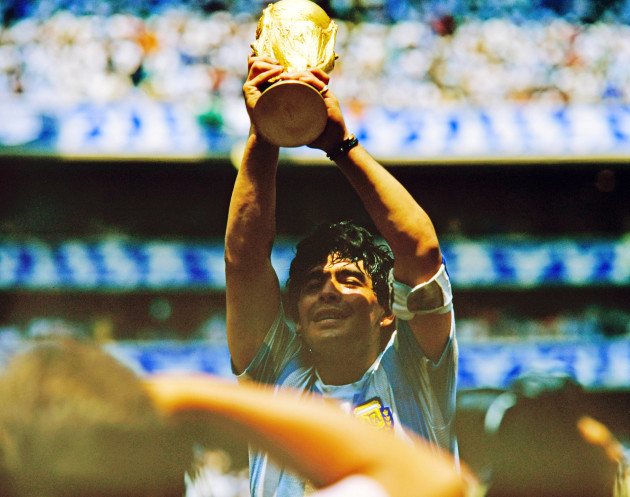THE FEAR OF sending a wayward shot into Mad Mary’s back garden is one of the things that drove us to ensure our attempts at goal were perfect.
Mad Mary, we later discovered, wasn’t mad, nor was she even named Mary, but legend had it that no football ever survived after trespassing onto her property, and any fella who was brave enough to go and retrieve one didn’t live to tell the tale.
The goal that our attention was focused on was in fact the seven-foot-high gate at the rear of our house, on the bend where Mahon Drive became Mahon Crescent. The tarmacked surface there played host to more World Cup games than the Maracana and the Azteca combined.
Were you fortunate enough to be the owner of a leather football, you made sure your parents didn’t see it being used off the grass, until the scuff and scratch marks inevitably gave you up.
The main incentive for mastering how you struck the “ledra”, however, was the desire to become the best player in the parks. With that came the honour of laying a rightful claim to the name “Maradona”.
As an annoying younger brother who tagged along with the older lads, I didn’t stand much of a chance of having that coveted title bestowed upon me. When I was eventually deemed worthy of qualification for the World Cup, purely to make up the numbers, it didn’t take long to suss out how things worked.
Each kid took on the role of a footballer of their choice, but the defending champion was always Diego Maradona. If the champion was absent, whoever was first to shout “I call Maradona!” deputised – which was seldom a straightforward process. Many a game was abandoned before it ever got going due to arguments over who was quickest out of the traps.
If you weren’t Maradona, you had to settle for playing one of the other greats of the era, such as Careca, Matthaus or Van Basten. But in reality, if you weren’t Maradona, you were no one.
The Maradona of those games was no different to any of us – a snotty-nosed, scabby-kneed kid who lived on the same terrace, fuelled by Opal Fruits and TK red lemonade – yet as we chased the Tango football and the prestige of victory, the moniker cloaked him in an aura of invincibility. Being Maradona was an advantage. It was worth a 1-0 lead before the game even began.
On the days when we were rained off, I loaded up the Commodore 64 and the World Cup took place there instead. The participating nations were typed out, the draw for the group stages was meticulously conducted and the outcome of each game was determined by what my imagination could muster up.
Although Ireland were often finalists, patriotism didn’t trump logic when it mattered. Argentina invariably prevailed thanks to their diminutive talisman. It did my education no harm either, as I learned how to spell important words like Czechoslovakia and Goycochea.
I knew of the name Maradona before I even knew who Maradona was. In the build-up to Italia 90, my older brother gave me a crash course, using the much-loved Orbis sticker album to outline what was to come.
The cover features several images, including one of Ireland full-back Chris Hughton haring down the wing after Ruud Gullit at Euro 88. However, one’s attention is immediately drawn to Argentina’s victorious captain at Mexico 86, holding five kilos of gold above his head.
El Pibe de Oro.
Only on birthdays and at Christmas could our parents’ budget stretch to an authentic jersey. Otherwise we had to be content with the phoney variations, which were worn with resentment.
There was only one exception. When a light-blue-and-white-striped geansaí with a black number 10 was handed to me from a Penney’s bag, the absence of the Adidas logo and Argentine Football Association badge was overlooked. Any opportunity to be more like Diego was to be grasped.
Back on the tarmac in Mahon, it’s important to be clear about what the idolisation actually meant, for we were Maradona only in name.
As wannabe football stars, our collective infatuation with the man never manifested itself in any form of expectation. We knew he was out on his own, an inimitable deity, someone to be revered, not emulated.
He provided inspiration, but even our wildest fantasies couldn’t tempt us with enough naivety to see his magic as an aspiration.


